
1976, Brian de Palma directs Carrie, the first novel by Stephen King. Since, more than 50 directors adapted the master of horror’s books, in more than 80 films and series, making him now, the most adapted author still alive in the world.
You May Also Like
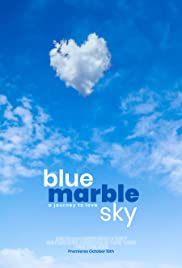
Following a set of traumatic experiences – best friends, Fletcher Barnes and Henry Davis, drop out of college in search of meaning. After months of adventure, they find themselves living with a traveling love wizard in a bizarre Los Angeles home. Inspired by his story and determined to dig deeper – they team up and head to Africa to discover how “love” is perceived in the world today.

Documentary about a man who steals a Banksy piece.
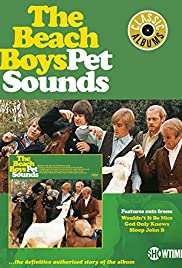
Celebrating the 50th anniversary of the release of ‘Pet Sounds,’ Brian Wilson and surviving members of The Beach Boys (Mike Love, Al Jardine, Bruce Johnston and David Marks) revisit the writing and recording of the landmark record that is consistently voted one of the top three influential albums of all time. Featuring exclusive interviews, classic archive and rare studio outtakes from the recording sessions.

Andrew Dice Clay presents a stand up special featuring his favorite blue comics, Eleanor Kerrigan, Steve Wilson, Erik Myers, Jason Rouse, Michael Wheels Paris, Colin Kane and The Smash Brothers.

A portrait of film critic Carlos Boyero, one of the most followed and feared figures in Spanish cinema, surrounded by controversy and both love and hate.
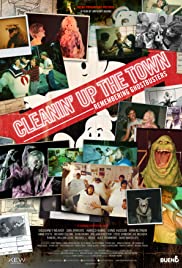
The documentary that tells us the full story from where it all started through to the future of the “Ghostbusters” franchise.

The full, shocking story of how Britain secretly used torture in its war against the Kenyan anti-colonialist Mau Mau movement in the 1950s.
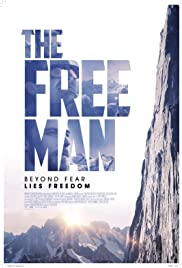
Freedom is defined as the power of self-determination attributed to the will; the quality of being independent of fate or necessity. To reach that level of liberty is a physical and mental endeavor that many will risk their life to obtain. Is life worth risking for the feeling of conquering fear and becoming free? Olympic Freestyle skier, Jossi Wells, meets extreme sports performing artists, The Flying Frenchies, to find out what it really means to be free and what drives individuals to chase such a powerful right. Directed by Toa Fraser, this is the story of men who push themselves to the point of no return. There is no going back when death is at your door and you realize that this is the most important moment of your life because it could be your very last.
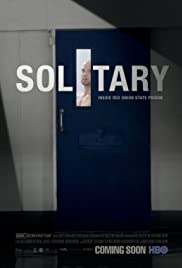
There are 100,000 US citizens in solitary confinement across the country, a staggering number prompting comment from both President Obama and the Pope. Situated in rural Virginia, 300 miles from any urban center, Red Onion State Prison is one of over 40 supermax prisons across the US built to hold prisoners in eight-by-ten-foot cells for 23 hours a day. Filmed over the course of one year, this eye-opening film braids stark prison imagery, stories from correction officers, and intimate reflections from the men who are locked up in isolation. The inmates share the paths that led them to prison and their daily struggles to maintain their sanity.

Documentary on the Shackleton Antartic expedition. A retelling of Sir Ernest Shackleton’s ill-fated expedition to Antarctica in and the crew of his vessel ‘The Endurance’, which was trapped in the ice floes and frigid open ocean of the Antarctic in 1914. Shackleton decided, with many of his crew injured and weak from exposure and starvation, to take a team of his fittest men and attempt to find help. Setting out in appalling conditions with hopelessly inadequate equipment, they endured all weather and terrain and finally reached safety. Persuading a local team of his confidence that the abandoned team would still be alive, he set out again to find them. After almost 2 years trapped on the ice, all members of the crew were finally rescued.
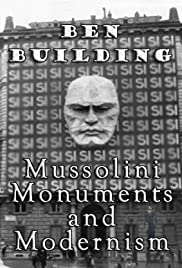
Having previously investigated the architecture of Hitler and Stalin’s regimes, Jonathan Meades turns his attention to another notorious 20th-century European dictator, Mussolini. His travels take him to Rome, Milan, Genoa, the new town of Sabaudia and the vast military memorials of Redipuglia and Monte Grappa. When it comes to the buildings of the fascist era, Meades discovers a dictator who couldn’t dictate, with Mussolini caught between the contending forces of modernism and a revivalism that harked back to ancient Rome. The result was a variety of styles that still influence architecture today. Along the way, Meades ponders on the nature of fascism, the influence of the Futurists, and Mussolini’s love of a fancy uniform.

In 1972, Miyuki tells her ex-lover Kazuo that she’s going to Okinawa with their son. Kazuo decides to film her. He narrates his visits to her there: first while her flatmate is Sugako, a woman Miyuki is attracted to; then, while she works at a bar and is with Paul, an African-American soldier. Once, Kazuo brings his girlfriend, Sachiko. We see Miyuki with her son, with other bar girls, and with Sachiko. Miyuki, pregnant, returns to Tokyo and delivers a mixed-race child on her own with Kazuo and Sachiko filming. She joins a women’s commune, talks about possibilities, enjoys motherhood, and is uninterested in a traditional family. Does the filmmaker have a point of view?